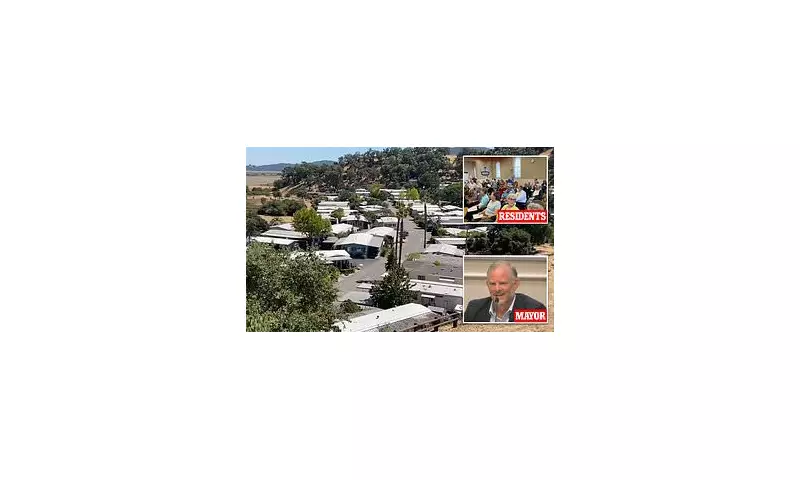
An air of tranquillity masks growing discontent within the gated community of Marin Valley Mobile Country Club, a sprawling 400-home park nestled in the hills of Novato, California. What was once a model of cooperative living is now the stage for a bitter standoff between management and homeowners.
At the heart of the dispute is the park's unique structure. Unlike a traditional homeowners' association (HOA), Marin Valley operates as a limited-equity housing cooperative. This means residents don't own their plots but instead hold shares in the corporation that owns the land. A central tenet of this model is the payment of monthly membership dues, which fund the park's maintenance and amenities.
A Wave of Financial Penalties
The simmering tension has boiled over as the co-op's board has begun taking severe action against those it claims are delinquent in their payments. Multiple residents have been hit with liens placed on their properties—a legal claim used as security for a debt. For homeowners like Linda Riedel, the threat is all too real. She asserts the board is demanding payment for dues she insists she has already paid, creating a stressful and confusing situation.
The board's attorney has not minced words, sending out letters that threaten further legal escalation, including potential eviction proceedings, if the outstanding balances are not settled promptly. This hardline approach has sent ripples of anxiety through the community of mostly senior residents.
Challenges to the Cooperative Ideal
The conflict strikes at the very foundation of the cooperative living concept. Residents argue that the board's aggressive tactics are undermining the community's founding principles of mutual support and affordability. The park, known for its lush greenery and country club-like amenities including a swimming pool and clubhouse, now finds its communal spirit tested by spreadsheets and legal threats.
This situation highlights the delicate balance and potential pitfalls of collective ownership models, where the financial obligations of one member can impact the entire community's stability and the enforcement of rules can lead to intense personal conflict.
The story of Marin Valley serves as a cautionary tale for cooperative housing ventures everywhere, demonstrating how financial disputes can threaten to unravel the very fabric of a carefully built community.





